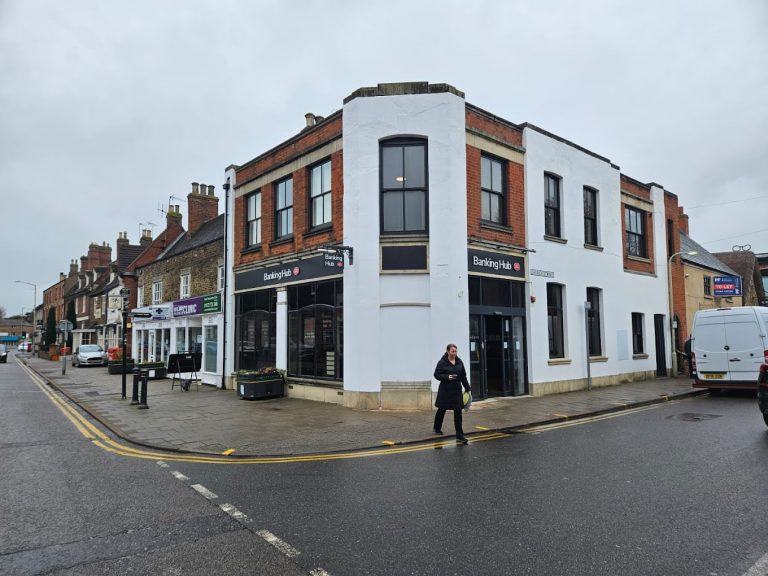UK inflation jumps
Government confirms £110 Billion gas field in Gainsborough will remain untapped
The UK government has confirmed that a newly discovered gas field beneath Gainsborough, estimated to be worth £110 billion, will remain untapped. Despite its potential to create thousands of jobs and contribute to the nation’s energy supply, the government has announced it will not issue new licenses for onshore gas extraction. The ban will remain in place due to concerns about seismic activity caused by the drilling process.
The gas field in the Gainsborough Trough beneath West Lindsey is expected to be formally announced by energy company Egdon later this month. However, the government remains committed to its renewable energy strategy, focusing on reducing dependency on fossil fuels. A spokesperson emphasised the shift towards clean energy by 2030, underscoring the potential economic benefits of this transition, particularly in industrial regions.
While local politicians have expressed concerns, with some calling for a reevaluation of the fracking ban, the government has reiterated its stance on protecting the economy and the environment. There is also no guarantee that private companies extracting the gas would prioritize domestic use over exports.
Despite the local support for the field, the government’s strategy continues to prioritise renewable energy investment, particularly in wind and solar power, as part of its long-term energy security plan.
Temporary banking hub to open in Bakewell following NatWest closure
A new temporary banking hub will open in Bakewell, Derbyshire, at the Agricultural Business Centre (ABC) by the end of February 2025. This comes after NatWest, the last bank in the Peak District National Park, closed in February 2024. Despite strong opposition from local residents and politicians, including Derbyshire Dales District Council (DDDC) leader Steve Flitter, the closure proceeded, leaving the area without any banking facilities.
In response, the DDDC worked with LINK, the UK’s cash access network, and secured the temporary hub. Cash Access UK, a not-for-profit organisation funded by major high street banks, will manage the hub. This facility will provide essential banking services, including cash deposits, withdrawals, cheque payments, bill payments, and utility top-ups, from Monday to Friday, 9:00 am to 5:00 pm. A community banker will also be available one day a week to address more complex inquiries.
The new hub is part of a broader initiative to improve access to banking services across Derbyshire. The Bakewell hub will be the fifth facility in the county, joining those in Belper, Clay Cross, and Shirebrook, with another planned for Ashbourne. This development aims to fill the gap left by the closure of high street branches, ensuring residents and businesses can continue to access essential banking services.
Alan Simpson named EMCCA’s sustainable travel ambassador
Alan Simpson has been appointed as the sustainable travel ambassador for the East Midlands Combined County Authority (EMCCA). A former MP with a background in sustainability and environmental policy, Simpson has advised on climate and energy issues for both the Welsh Assembly and the UK Parliament.
His appointment comes as EMCCA prepares to develop its first Local Transport Plan, aiming to improve regional connectivity and promote low-carbon travel options. Mayor Claire Ward has emphasised sustainable travel as a priority, with a focus on making walking, cycling, and other eco-friendly transport options more accessible.
Businesses and local authorities will be watching how EMCCA allocates resources to infrastructure and policy changes that could impact regional transport and logistics.
Duncan & Toplis expands into Derbyshire with Underwood Green Acquisition
Duncan & Toplis has acquired Derby-based accountancy firm Underwood Green, marking its expansion into Derbyshire. The acquisition is part of the firm’s ongoing growth strategy and coincides with its 100-year anniversary.
Underwood Green will rebrand under Duncan & Toplis, with all employees, including directors Gary Underwood and Richard Green, remaining in their current roles at the firm’s Pride Park office in Derby. The deal follows Duncan & Toplis’ recent acquisition of North London-based ALG, further extending its reach across the Midlands and beyond.
The acquisition allows Duncan & Toplis to strengthen its presence in Derbyshire while expanding its service offerings. The firm is also looking to grow its tax advisory team and is actively recruiting. The deal has received full regulatory approval, and Duncan & Toplis continues to explore further acquisitions.
Premier Inn plans expansion and rebrand in Cleethorpes
Premier Inn is seeking approval from North East Lincolnshire Council for a 32-room expansion at its Cleethorpes location on Kings Road. The hotel chain also plans to rebrand an adjacent Brewers Fayre restaurant, which closed in July, for exclusive use by hotel guests. Whitbread, the parent company of both brands, would retain the ground-floor dining and bar area, with 20 additional rooms set for the first floor. If the proposal is approved, the hotel’s total room count will rise to 116, and parking capacity will increase by five spaces to 120.
This follows a similar application made last year for the Premier Inn in Grimsby, where the hotel intends to add 20 new rooms and rebrand a Brewers Fayre restaurant to bring the total capacity to 78 rooms. A decision on that expansion is still pending.
Topps Tiles faces CMA scrutiny over acquisition of CTD Stores
The UK’s Competition and Markets Authority (CMA) raises concerns over Topps Tiles’ recent acquisition of 30 stores from CTD Tiles, warning that the deal could reduce competition in four UK regions. The £9 million acquisition followed CTD’s administration in 2024, with the company being the second-largest specialist tile retailer in the UK.
The CMA’s investigation has identified potential risks for businesses and consumers in Dorking, Edinburgh, Inverness, and Aberdeen. The merger could lead to higher prices and reduced service quality. Complaints have been raised about the impact on local competition, particularly for retail customers and businesses reliant on tile supply.
The Leicestershire-based Topps Tiles has until February 24 to submit proposals to address the CMA’s concerns. If the company fails to do so, the deal could face a more detailed investigation.
While Topps has committed to cooperating with the CMA, the acquisition has raised red flags among its largest shareholders. MS Galleon, which holds a significant stake in Topps, has expressed concern that the deal was overpriced and does not align with the company’s long-term strategy.
UK launches new visa programs to tackle labour shortages
The UK is grappling with significant labour shortages across multiple sectors, placing considerable strain on its economy. In response, the government has rolled out new visa programs designed to attract international workers to fill critical roles. Sectors such as agriculture, healthcare, construction, and hospitality bear the brunt of the staffing gaps.
Agriculture has been hit particularly hard, as farms traditionally rely on seasonal foreign workers for roles like fruit picking and farm assistance. With fewer local workers willing to take on these physically demanding jobs, the government has introduced the Seasonal Worker Visa to allow international workers to take up short-term positions, with wages ranging between £10.42 and £12 per hour.
There is an urgent need for roles such as nursing assistants and care workers in healthcare. The government has launched the Health and Care Worker Visa to help alleviate these shortages, offering positions with hourly wages from £10.75 to £16.00, aimed at attracting skilled workers from abroad.
The construction sector is also experiencing high demand for skilled tradespeople, including bricklayers, electricians, and plumbers, with competitive pay rates of up to £25 per hour. The Skilled Worker Visa has been expanded to target this industry, enabling foreign workers with the qualifications to fill these positions.
Meanwhile, the hospitality sector, which has seen a surge in demand post-pandemic, is struggling to hire enough staff for roles like chefs, waiters, and hotel receptionists. The Skilled Worker Visa and Temporary Work Visa are being utilized to meet this need, with salaries ranging from £10.50 to £14 per hour.
The government’s expanded visa pathways include the Seasonal Worker Visa for short-term roles, the Skilled Worker Visa for long-term, skilled positions, the Health and Care Worker Visa focused on the healthcare sector, and the Temporary Work Visa for industries with fluctuating demand like hospitality and retail.
These initiatives are part of a broader strategy to ease labour shortages by providing sectors access to a larger pool of international talent. As the UK faces ongoing workforce challenges, these visa programs offer a crucial solution for industries struggling to maintain operations.












